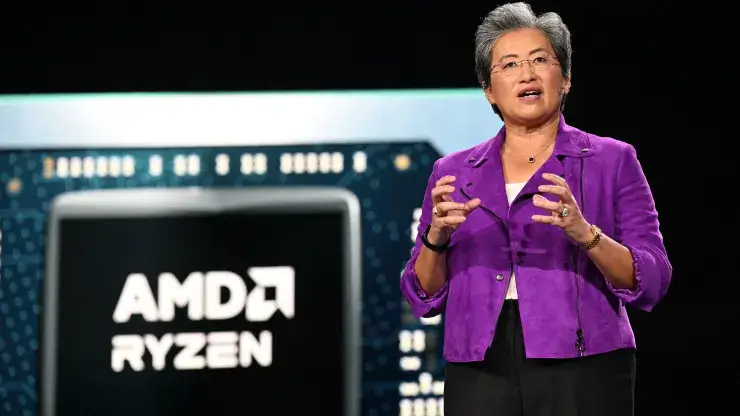In recent developments, AMD, one of the prominent semiconductor giants, has expressed its intention to create a specialized artificial intelligence (AI) chip tailored specifically for the Chinese market. The move comes as a response to the U.S. export curbs imposed on certain chip technologies, prompting companies like AMD, Nvidia, and Intel to navigate the regulatory landscape while still catering to the lucrative Chinese market.
During an earnings call, Lisa Su, the CEO of AMD, emphasized the importance of the Chinese market and stated their commitment to comply fully with U.S. export controls. However, Su also acknowledged the opportunity to develop AI products for the Chinese customer base, which is actively seeking AI solutions. By focusing on accelerator chips, which are crucial for training vast amounts of data in AI applications, AMD aims to tap into the growing demand for AI-driven technologies in China.
One of AMD’s key AI chips, the MI300, is being positioned as a direct competitor to Nvidia’s powerful graphics processing units (GPUs) used extensively for AI training. Nvidia currently dominates the AI chip market, making it challenging for other players like AMD to establish a significant foothold. Nevertheless, AMD is optimistic about its MI300’s potential to challenge Nvidia’s supremacy and gain ground in the AI chip market.
It’s worth noting that the U.S. government’s restrictions on chip sales to China have already affected Nvidia and Intel. Both companies were compelled to modify their chips to comply with export regulations. Nvidia had to make adjustments to its A100 and H100 chips, while Intel created a modified version of its Gaudi 2 AI chips for the Chinese market. These measures highlight the complexities that tech companies face in navigating the international trade landscape, where compliance with export controls becomes essential.
Despite the challenges and regulatory hurdles, the Chinese market remains highly attractive to U.S. chipmakers, particularly in the field of AI. Due to the limited availability of homegrown alternatives, companies like Nvidia, AMD, and Intel see significant growth opportunities in providing cutting-edge AI technologies to Chinese customers.
For AMD, its MI300 AI chip carries immense significance as it endeavors to compete with Nvidia and expand its presence in the data center business. The company anticipates considerable growth in the data center sector during the second half of the year, driven in part by the adoption of its new AI chip.
AMD’s plans to develop an AI chip specifically for the Chinese market reflect the company’s strategic response to U.S. export curbs and its desire to stay compliant while tapping into the vast potential of the Chinese AI market. As the competition intensifies among chipmakers vying for dominance in the AI space, the development of innovative and specialized chips becomes crucial to gain an edge in this rapidly evolving technology landscape.





